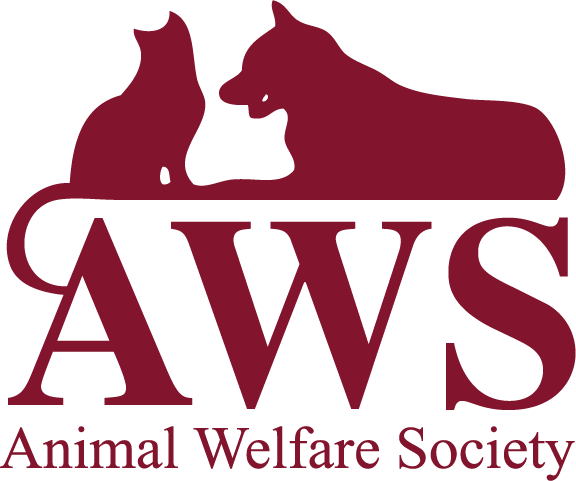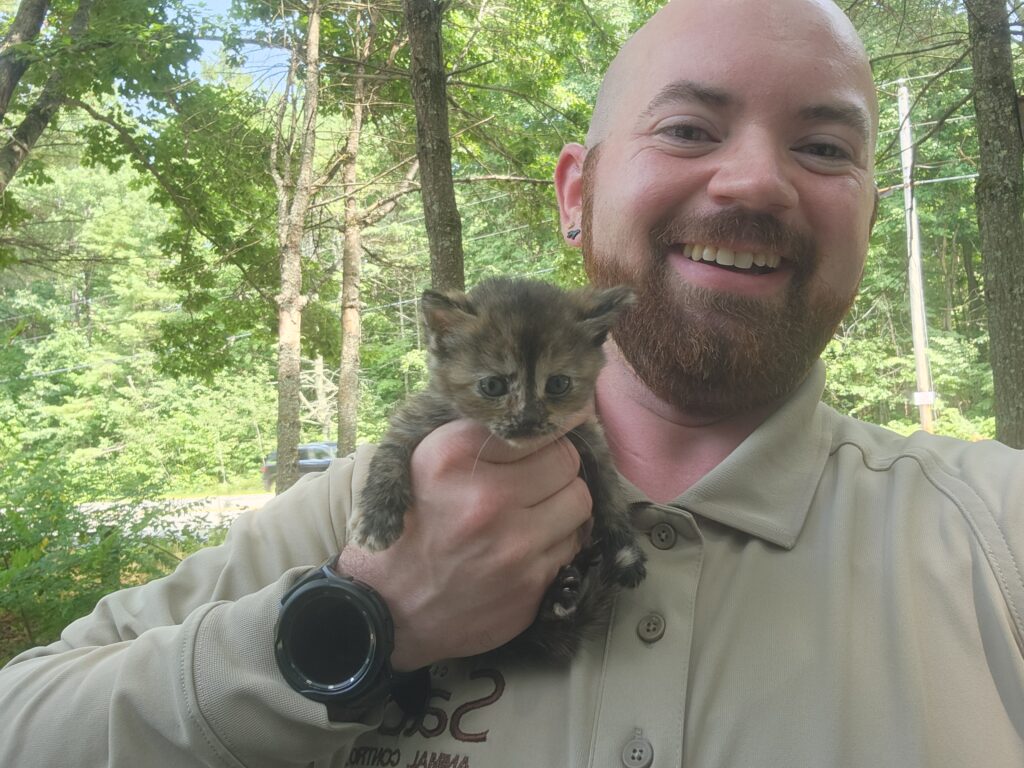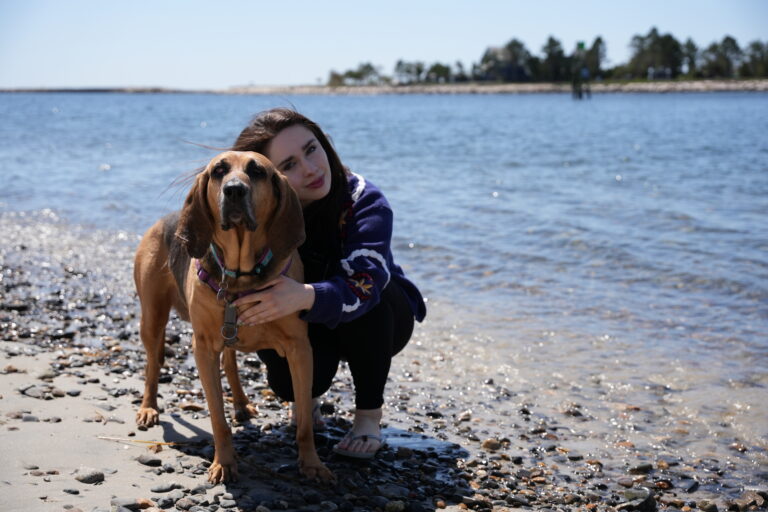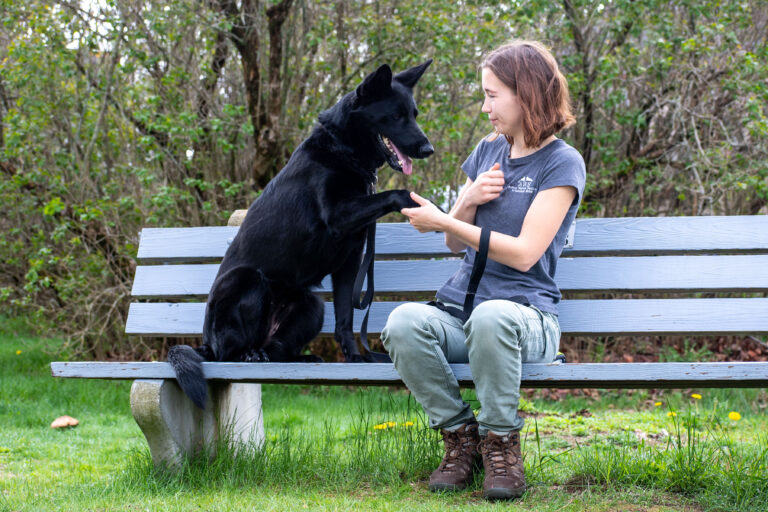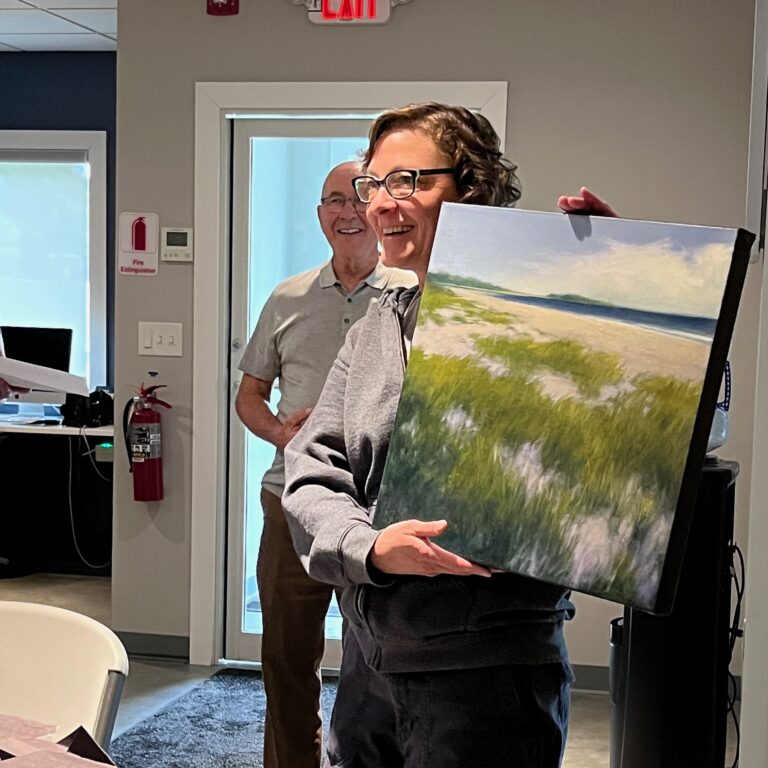Celebrating 2025 Animal Control Officer Appreciation Week
This week is Animal Control Officer Appreciation Week! We’re highlighting the work animal control officers (ACOs) do in our community, looking after stray, homeless, lost or found pets and helping pet owners care for their animals. ACOs are a valuable resource for pets and pet families in our communities.
We are grateful for the strong relationship we have with the ACOs in our communities. Most towns have an ACO, who can be reached through the police department non-emergency line. AWS’ ACO partners have 24/7 access to our facility so that any pets they find when we are closed (specifically at night) immediately have safe and comfortable accommodations. The first thing our staff does each morning is to check if there are any new pets in our care! Thank you ACOs for keeping our community’s pets safe!
First off, what is an animal control officer?
Animal Control Officers (ACOs) are trained professionals employed by a local municipality (usually the police department) to handle all calls related to stray, homeless lost or found pets. Some ACOs are also sworn police officers, and some investigate animal cruelty and neglect cases in their jurisdictions. Follow the button below to find your local ACO.
To learn more about what being an ACO, we’ve reached out to our longtime partner, Kaden Flynn, who is the ACO for the town of Saco. Follow along!
What inspired you to become an animal control officer?
Since I was very young, I have wanted to become an Animal Control Officer. I learned about the job through the television show “Animal Precinct” which was about ASPCA Humane Agents that worked in New York. I love animals and have always wanted to help them, so it seemed like the job for me!
How long have you been an animal control officer?
As of April 5, I have been working as an ACO for nine years. I started off as a part-time, on-call ACO for the towns of Hollis and Limington in 2016. In 2018, I was hired part-time for the City of Saco. Then, in 2020 I took a part-time position in Buxton, leaving Hollis and Limington. And finally, in 2021 Saco offered me a full-time position and that’s where I’ve been since.
What does a “typical day” look like for you on the job?
I’d say there really isn’t a typical day for an ACO. One day last week I started off with a call regarding a dog being left outside in the rain for over 20 minutes. They were crying to get back in. After I responded to that call and spoke to the owner, I was dispatched to a call regarding a neighbor feeding seagulls and causing several to hang around in the morning. In the past, I wouldn’t have responded to this type of call. But with the Avian Flu effecting livestock, pets and humans, it was important to educate the owners on the health risks they were putting themselves and their neighbors in.
Afterwards I worked on a dog bite report that was faxed over by the local urgent care facility. I also followed up on a missing cat. Compared to the day prior, I had no calls and no follow ups to conduct so I spent a great deal of time working on rabies certifications and dog licensing. You never really know what your day is going to be like!
What’s the most rewarding part of the job?
The most rewarding part of the job is being able to reunite lost pets with their owners and helping sick or injured animals.
What’s a memorable moment you’ve had?
I’ve had a few memorable moments in my career. I was once able to catch a dog that had been on the run for a week. He was terrified and wouldn’t come to anyone. This stuck with me due to the dog being a small breed and recently adopted so there was a lot of fear he would interact with a wild animal or would not be caught.
The other memorable moment was when I was dispatched for a stray gerbil that had been hanging out on a property near the beach. It took the homeowner and I several days to catch. I think I spent about $5 at a local grocery store salad bar to get him into the trap. I wasn’t sure we’d be able to catch him since he was small enough to fit through my net!
Are there any common misconceptions people have about animal control officers?
One common misconception that I hear every so often is that I’m a “dog catcher.” While catching loose dogs is a part of my job, it’s only a small piece of my overall job. Another would be that because I’m an animal control officer, I should handle all animal calls. I occasionally deal with wildlife that is injured, sick or sometimes makes its way into your home. I’m not the one to call regarding all wild animal complaints.
AWS is not equipped to handle or care for wild animals. Fortunately, Maine has several statewide resources that do care for these types of animals. Learn more here.
Are there any things people in the community can do to make your job easier or safer?
To make my job easier, people can make sure their dogs are wearing a collar with a tag. I do have a microchip scanner but the process to scan, look up the company, call the company, get the owners information, and then call the owner takes several minutes. A dog having a collar with a tag can be identified in just a few seconds! If you can’t put a tag on the collar, please have the animal microchipped*. It’s much easier for me and the animal to be reunited than having the animal wait at the shelter. Having the animal microchipped can be lifesaving if the animal is injured and needs medical care.
To make my job safer, if you have a dog that has aggression or specific places they don’t like to be touched – please let me know before I handle them. I’ve had a few occasions where I’ve had to assist with picking up an animal and was later informed of the dog’s past bite history. I won’t judge you or your dog! Having all of the information beforehand makes me better aware so I can protect myself and we can prevent a bite that would lead to a dog needing to be quarantined.
*You can get your pet microchipped at your vet’s office or at AWS’ Community Veterinary Clinic. In fact, AWS will be having a free microchip clinic coming up in June (keep an eye on the website for details)
